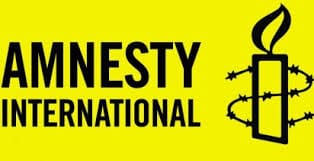Ahead of planned nationwide protests in response to food shortages and cost of living crisis, Amnesty International’s Nigeria Director, Isa Sanusi, said:
“The Nigerian authorities must ensure that security agencies respect and facilitate the right to peaceful protest, as guaranteed by both the country’s own constitution and human rights treaties including the African Charter on Human and Peoples’ Rights and the International Covenant on Civil and Political Rights to which Nigeria is a state party.
Government officials must also refrain from issuing rhetoric to demonize protesters and stifle peaceful dissent.
“Authorities must not use the proposed nationwide protests as a ploy to crackdown on human rights including the rights to freedom of expression and peaceful assembly. People must be allowed to freely exercise their right to peaceful protest. The arrests of at least three people last week for allegedly supporting the protests on social media show the authorities’ intolerance of peaceful dissent.
“The escalating price of food is driving millions of people in Nigeria deeper in poverty while countless families are increasingly unable to afford the costs of healthcare and education. The Nigerian authorities must begin seriously address the underlying issues driving the protests instead of ramping up repression and stifling peaceful dissent.
“Authorities must show the commitment to uphold the country’s constitutional and international human rights obligations by allowing people to freely exercise their human rights including the rights to freedom of expression, peaceful assembly and association.”
According to the report distributed by APO Group on behalf of Amnesty International, Nigeria is currently facing a crippling economic crisis, with inflation rates on food hitting 36 per cent. The removal of fuel subsidies in May 2023 is driving many people into poverty, while officials have been accused of corruption.
It added that since 20 July, many people have used social media platforms to organize nationwide peaceful protests proposed for 1-10 August. The Nigerian authorities have, at times, labeled the protests as deliberate attempts to unleash violence.
GIK/APA
Nigerian Authorities urged to uphold human rights ahead of planned nationwide protests –


